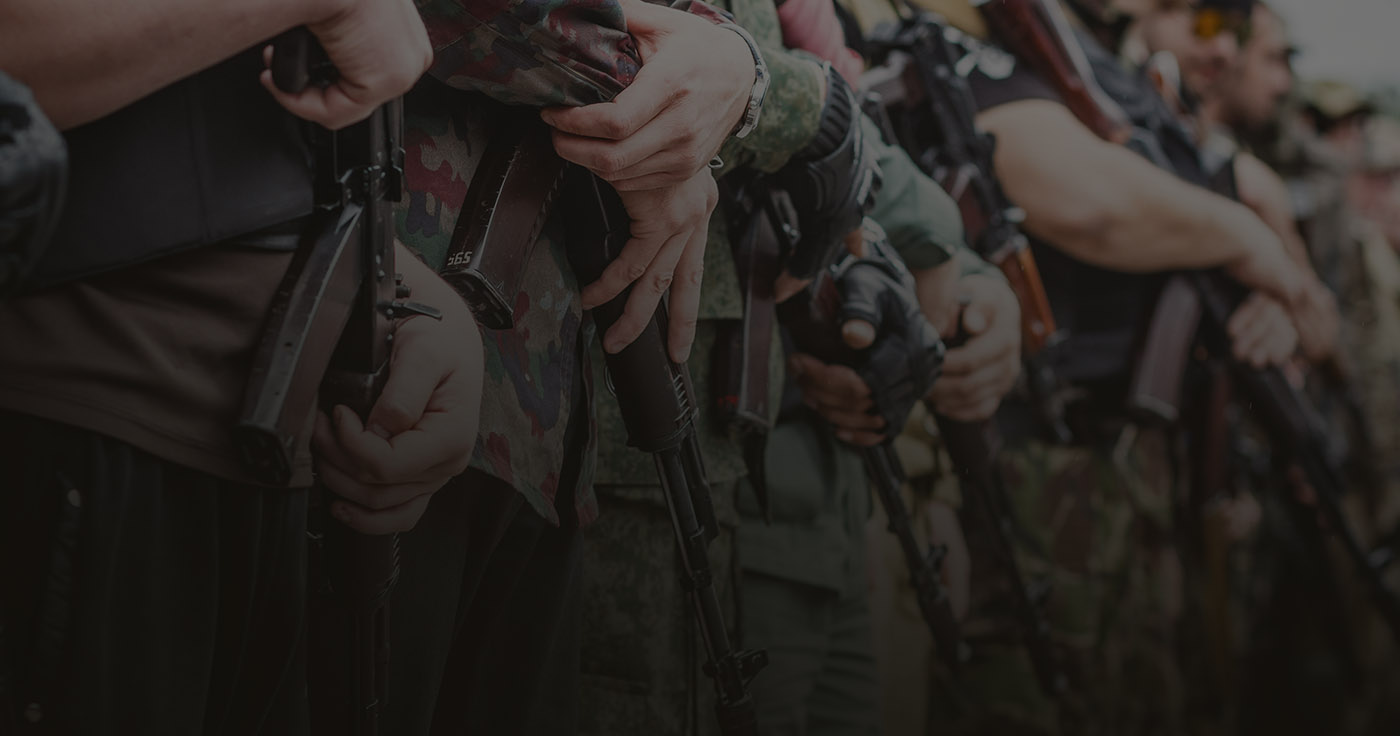When President Vladimir Putin addressed the Russian public to announce that the full‑scale invasion of Ukraine had begun in February 2022, he claimed that a key aim of the “special military operation” was “de‑Nazification,” the removal of the supposedly neo‑Nazi leadership in Kyiv.
It ought to go without saying that this was not true and that the Jewish, Russian‑speaking, Ukrainian President Volodymyr Zelenskyy is not leading a fascist effort to subjugate ethnic Russians, necessitating a “humanitarian” campaign to obliterate cities across the country, regardless of the real presence of neo‑Nazis within certain units of the Ukrainian armed forces and other allied paramilitary outfits.
Download PDF
In what might be described as a case of Freudian projection, the Russian government of today hews closely to the traditional definition of fascistic, certainly in contrast to the country it has tried to conquer. No shortage of Russian state media coverage has been dedicated to the complete militarization of society, the veneration of empty symbols, genocidal rhetoric about Ukrainians, paranoia about the American and NATO enemy at the gates and corrosive fifth columnists within. Then there is Putin’s open embrace of a “holy war” against the degenerate liberalism of the West as embodied, as he sees it, by LGBTQ rights, “cancel culture” and the erosion of traditional values.
But none of this should be surprising. Despite years of documentation, the Russian government has somehow persuaded a surprising number of foreigners that the first eight years of the current war, waged by the puppet “People’s Republics” of Donetsk and Luhansk, was in some way a left‑wing or even “antifascist struggle.”
The actors whom the Russian security services relied upon to realize this project, which began in 2004, developing quietly before shifting gear into outright warfare in 2014, had long strived to rebuild the fallen Russian Empire. All of them had come of age in the 1990s when the shock of the Soviet Union’s catastrophic implosion left many of those on the right, who had been among its fiercest critics, enraged by its territorial disintegration. What is more, these individuals had relationships with each other, often close, that went back well before the war, to the 1990s.
This report is a history of how Russia’s war against Ukraine was, from its very inception, led by figures from the extreme far right of Russia, politicos, intelligence operatives, mercenaries and military commanders whose career‑defining personal relationships and eccentric religious and ideological beliefs were developed in the chaotic final days of the USSR.
It is also a story of how the Russian security services cultivated these individuals and ideas, despite their apparent hostility to the incumbent regime, not just to use as assets for provocations or plausible deniability, but also as a long‑term strategy for survival and dominance.
Since the days of the Tsar’s own secret police, the Okhrana, the Russian security services have infiltrated and used the fringes of the political opposition to stage provocations and control dissent. What is different about the figures in this report is that these political extremists, with their eccentric personalities and ideologies that were anathema to the official line, would not just be employed as tools but also given critical, public‑facing tasks of state in wartime. Rather than operating in the murk, these individuals, bringing along much of their ideological baggage, became household names at home and international pariahs.
The ascendancy of the far‑right in the Russian state had a long gestation. Back in the 1980s, as it became apparent that communism had reached an ideological and economic dead end, the security services appear to have decided to use fascism as a lifeboat to ensure the survival of their authoritarian “deep state.”
This process was taking place not only on the battlefields of newly independent republics but also within the halls of power. While the KGB’s rivals in the CIA are much better known for investing time and money in search of paranormal phenomena such as remote viewing1 and telekinesis, such ideas were also circulating among Russian spooks in the social and political turmoil of the ’90s. Nikolai Patrushev, the former head of the FSB (the successor to the KGB) and current chair of Russia’s powerful security council, has cited “statements” made by the former and late U.S. Secretary of State Madeleine Albright purportedly demonstrating American desires to conquer and carve up Siberia. These statements were credited to Georgy Rogozin, a psychic general in the KGB and Presidential Security Service.
Against this background, the KGB concocted their own esoteric cult, drawing on a logic‑destroying combination of dry, management theory jargon, pseudo‑paganism and old‑fashioned antisemitism.






